Disparagement Provision in Lanham Act Found Unconstitutional
December 23, 2015
Hamilton Brook Smith Reynolds Alert
Registration Bar In Effect Since 1946 Found Contrary to Bedrock First Amendment Principle
- Federal Circuit finds that the government cannot refuse registration based on its disapproval of an expressive message conveyed in a disparaging mark
- A disparaging mark is a mark that dishonors by comparison with what is inferior, slights, deprecates, degrades, or affects or injures by unjust comparison
- Federal Circuit recognizes that invalidating a provision barring registration based on disparagement may lead to wider registration of marks that offend vulnerable communities
Section 2(a) of the Lanham Act bars the U.S. Patent and Trademark Office from registering scandalous, immoral, or disparaging marks. 15 U.S.C. § 1052(a). According to the Court of Appeals for the Federal Circuit (Federal Circuit), the government enacted this law because it disapproves of messages conveyed by disparaging marks. The Federal Circuit decided on December 22, 2015 in In re Tam that the government cannot refuse to register disparaging marks because it disapproves of the expressive messages conveyed by those marks: "It is a bedrock principle underlying the First Amendment that the government may not penalize private speech merely because it disapproves of the message it conveys." As a result, the Federal Circuit holds, "[t]he government regulation at issue amounts to viewpoint discrimination, and under the strict scrutiny review appropriate for government regulation of message or viewpoint, we conclude that the disparagement proscription of § 2(a) is unconstitutional."
The Federal Circuit recognized that many marks rejected as disparaging convey hurtful speech that harms members of oft-stigmatized communities, providing in its decision a list of a number of phobic marks that have been rejected as disparaging. Nevertheless, the Federal Circuit concluded that, "the First Amendment protects even hurtful speech." In this case, Mr. Simon Shiao Tam, the front man for an Asian-American dance-rock band, appealed the rejection of his application to register the mark THE SLANTS for "Entertainment in the nature of live performances by a musical band." In support of its finding that this case "exemplifies how marks often have an expressive aspect over and above their commercial speech aspect," the Federal Circuit stated:
Mr. Tam explicitly selected his mark to create a dialogue on controversial political and social issues. With his band name, Mr. Tam makes a statement about racial and ethnic identity. He seeks to shift the meaning of, and thereby reclaim, an emotionally charged word. He advocates for social change and challenges perceptions of people of Asian descent. His band name pushes people. It offends. Despite this-indeed, because of it-Mr. Tam's band name is expressive speech.
The decision does not prevent restrictions on registration based on deceptive speech because these restrictions do not run afoul of the First Amendment -- the government may ban forms of communication more likely to deceive the public than to inform it.
The Federal Circuit's holding is expressly limited to the constitutionality of the § 2(a) disparagement provision, leaving consideration of other provisions of § 2(a), such as immoral or scandalous marks, to future panels. The Federal Circuit overturned In re McGinley, 660 F.2d 481, 484 (C.C.P.A. 1981), a decision by its predecessor court that had determined that a refusal to register a mark does not affect the owner's right to use the mark and, as a result, does not abridge First Amendment rights.




